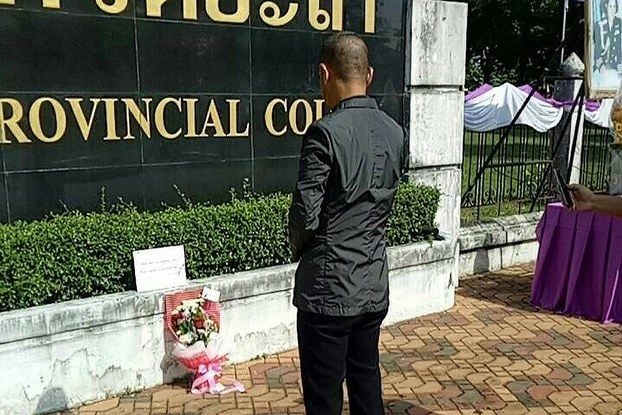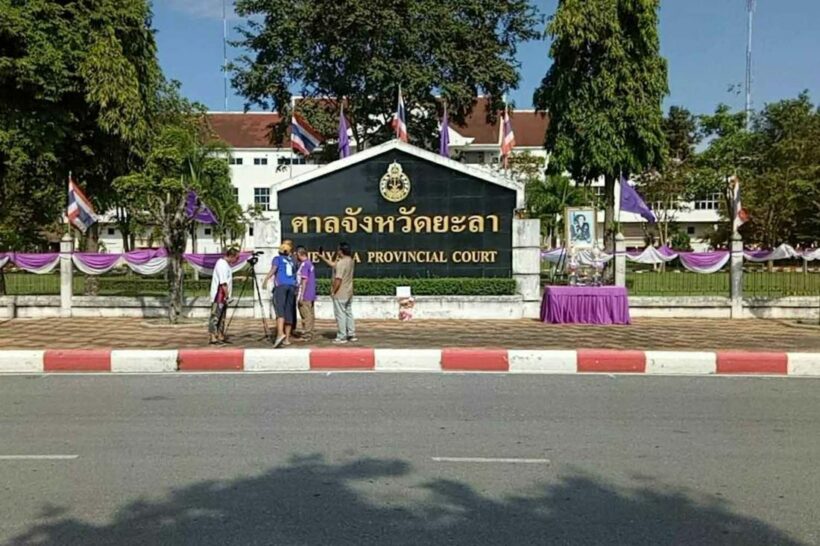Investigative panel to probe alleged judicial meddling – reports in 15 days

“The 3 member panel will now have 15 days to wrap up the initial probe and submit their conclusions to the Judicial Commission.”
PHOTO: Mariyam Ahmad/BenarNews
In a story that has shaken Thais, who have broadly rallied behind the Yala Chief Judge, the government has been forced to act swiftly with an independent enquiry.
Yesterday, the Judicial Commission has announced a three-member panel to run a thorough fact-finding mission into the self-shooting of a chief judge at Yala’s provincial court last Friday. At the time Judge Khanakorn Pianchana made allegations of interference in his handling of a case as he read out the verdict to court.
The panel comprises Mrs. Wassana Hongcharoen, chief of the Supreme Court’s Juvenile and Family Cases Department, Mr. Anurak Sa-nga-areekul, chief judge of a panel on the Appeals Court, and Mr. Suvicha Sukkasemhathai, a chief judge in the Criminal Court.
The 3 member panel will now have 15 days to wrap up the initial probe and submit their conclusions to the Judicial Commission.
Yala provincial courts’ chief judge shot himself inside the court house after delivering a verdict on a group of defendants charged with the murder of five people in Yala province. Shortly after, a 25 page statement, allegedly written by Khanakorn and accusing the chief judge of Region 9 of “meddling in the murder case”, was posted by Future Forward secretary-general Piyabutr Saengkanokkul.
Piyabutr claims he received the document back in September.
Meanwhile, an unnamed Supreme Court judge has confirmed that, according to the Judicial Affairs Statue, senior judges can check draft verdicts of junior judges to ensure the verdict writing is up to standard and to ensure fairness to both parties. This was changed with the promulgation of the so-called People’s Constitution in 1997, which forbad senior judges from interfering with the verdicts of junior judges. But he claims that, subsequently, many lower court verdicts have been overturned by higher courts, causing alarm among senior judges.
The old practice of senior judges screening the verdicts was reintroduced when the new Constitution was enacted in 2007, according to the unnamed Supreme Court senior judge, adding that to revert back to the practice of forbidding senior judges to screen verdicts “must be supported with facts, not rhetoric, otherwise the judicial process will be negatively affected”.
SOURCE: Thai PBS World

PHOTO: Bangkok Post
Latest Thailand News
Follow The Thaiger on Google News:


























